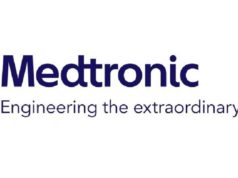 Saluda Medical today announced long-term results from its double-blind, Level 1 EVOKE trial, which have been published in JAMA Neurology and demonstrate superior, sustained pain relief with the company’s Evoke closed-loop spinal cord stimulation (SCS) technology as compared to open-loop SCS systems. This follows the publication of 12-month EVOKE study results in The Lancet Neurology in late-2019.
Saluda Medical today announced long-term results from its double-blind, Level 1 EVOKE trial, which have been published in JAMA Neurology and demonstrate superior, sustained pain relief with the company’s Evoke closed-loop spinal cord stimulation (SCS) technology as compared to open-loop SCS systems. This follows the publication of 12-month EVOKE study results in The Lancet Neurology in late-2019.
“In my view, the EVOKE study has demonstrated through rigorous clinical evidence that Evoke ECAP [evoked compound action potential]-controlled closed-loop SCS is poised to provide chronic pain patients with a remarkable opportunity to improve their total health and live a pain-free life,” said Nagy Mekhail (Cleveland Clinic, Cleveland, USA), lead author and medical monitor for the EVOKE study. “These unprecedented outcomes have the potential to set new clinical standards for chronic pain treatment, and I believe the results are due to the Evoke system’s novel technology, which is designed to instantaneously measure the spinal cord’s response to stimulation and automatically adjust to maintain consistent therapy in and out of the clinic.”
The EVOKE study is the first double-blind, pivotal randomised controlled trial (RCT) in SCS, according to a Saluda press release, and includes the longest follow-up period of any SCS study, with follow-up out to 36 months. The company also claims the this is the first study to evaluate the effectiveness of ECAP-controlled, closed-loop SCS versus open-loop SCS.
The limitation of open-loop SCS systems is the lack of adjustment to the broad range of electrical field strength reaching the spinal cord due to changes in distance between the stimulation electrode and the nerves, the release continues. These changes in distance are caused by normal physiological activity—such as breathing and heartbeat—as well as movement, which results in variable nerve activation.
The Evoke system is designed to address these limitations through consistently optimising therapy dosing and pain relief by instantaneously measuring and adjusting stimulation at the microsecond level through proprietary ECAP-controlled closed-loop SCS technology. Evoke is an investigational device in the USA, and will not be approved or available for sale in the USA until it receives regulatory clearance from the US Food and Drug Administration (FDA).
The recently published two-year results from the EVOKE trial demonstrate that superior, 12-month pain relief results with the Evoke closed-loop system were sustained out to 24 months—and that Evoke closed-loop patients exhibit greater long-term improvements in patient-reported outcomes than open-loop patients, with quality-of-life improvements nearing normative values for the US population despite the severity of baseline chronic pain.
According to Saluda, the primary and secondary outcomes with closed-loop Evoke are on par with or better than evidence from 24-month outcomes presented in any previously conducted SCS RCT, and demonstrate that Evoke closed-loop patients experience improvements across many aspects of their health, with a majority experiencing clinically important differences in functional ability, quality of life, sleep, and mood, as well as meaningful reductions in opioid use. A Saluda press release notes that significant findings from the EVOKE study at 24 months include:
- Superiority in treatment of overall back and leg pain, and long-term pain reduction
- Highest long-term responder (≥50% relief) and high responder (≥80% relief) rates of 84% and 50%, respectively
- Highest reported improvements in overall quality of life, pain relief, ability to perform daily activities, sleep quality, mood, and opioid reduction
- Statistically significant higher degree of spinal cord activation maintained within the therapeutic window (94% vs 46% for open-loop SCS)
- Quality of life improvements were better than other chronic pain treatments, such as lumbar decompression and fusion, and rival distinguished interventions for other conditions like hip and knee arthroplasty
- Nearly seven out 10 patients (66.7%) voluntarily reduced or eliminated opioids
- No explants due to loss of efficacy. At 24 months, there were no explants due to loss of efficacy in the closed-loop arm. There were a total of two explants due to loss of efficacy in the open-loop arm, and a total of three explants due to procedure-related infections (two in the closed-loop arm, one in the open-loop arm).
In addition to these findings, the study demonstrated that Evoke closed-loop SCS demonstrated a “near-elimination of reprogramming visits after 12 months, saving clinician and clinic time for additional patient care”, the release adds.
The US EVOKE pivotal study is a double-blind RCT conducted at 13 sites throughout the USA and following a total of 134 patients. Patients were randomised 1:1 to ECAP-controlled, closed-loop SCS or open-loop SCS, with the same neuromodulation system (Evoke) serving as the investigational and control device, as it can offer both closed- and open-loop techniques. For both treatment groups, real-time spinal cord activation was determined from measured ECAPs and stored, according to Saluda.












